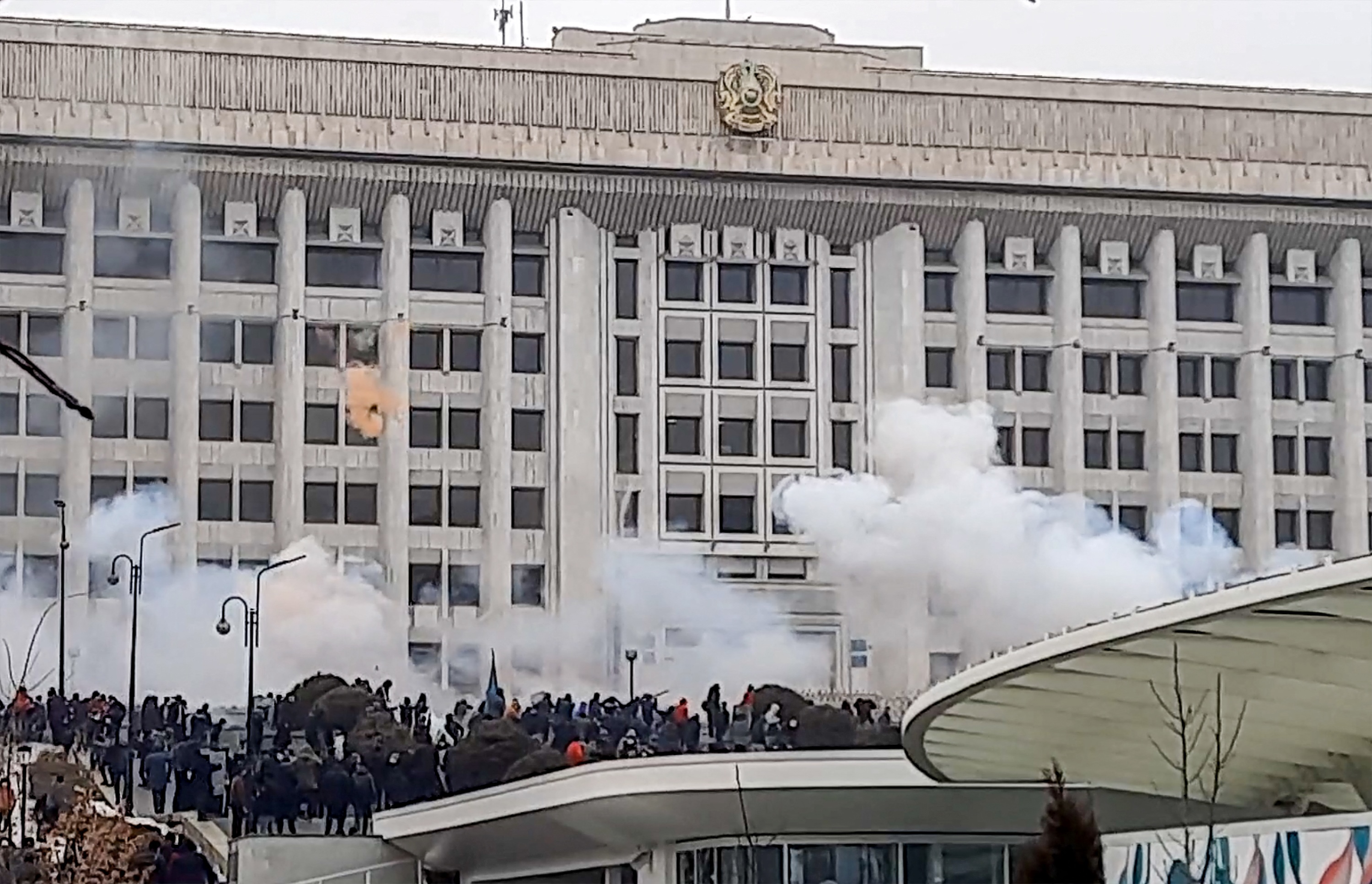Kazakh President rejects international probe into deadly unrest
Sign up now: Get ST's newsletters delivered to your inbox

An image grab shows protesters near an administrative building during a rally over a hike in energy prices in Almaty on Jan 5, 2022.
PHOTO: AFP
NUR-SULTAN (AFP) - Kazakhstan President Kassym-Jomart Tokayev on Saturday (Jan 29) rejected calls for an international probe into a crisis in the ex-Soviet country and said he had no plans to change the Constitution to extend his rule.
Over 200 people were killed and thousands injured earlier this month in violence that began with anti-government protests and prompted the country to call in Russia-led troops.
Mr Tokayev and other Kazakh officials have blamed the clashes that sent Central Asia's richest country into turmoil on bandits and terrorists with foreign connections, while providing little proof to back up the theory.
In his first televised interview since the crisis began, Mr Tokayev reiterated that Kazakhstan had been under attack from militants and said the state would be able to probe the events without foreign help.
"I don't see the need for such an (international) investigation. We have our own people that are honest, objective," Mr Tokayev said in the interview shown by the state broadcaster Khabar.
International rights organisations and the European Parliament are among those that have pushed for an international investigation into the violence that erupted following peaceful protests that initially targeted a fuel price hike in the west of the country before extending to other political demands.
Mr Tokayev called the European Parliament's Jan 20 resolution "unobjective, premature" in his interview.
"It does not worry me," he added.
Two-term president?
Mr Tokayev also used the interview to claim that he had no plans to emulate his predecessor Nursultan Nazarbayev, 81, who served as head of state for close to three decades before easing protege Tokayev into the presidential hot seat in 2019.
"I do not know how long I will be the President of Kazakhstan, but I absolutely know that, in accordance with the Constitution, no more than two terms. There will be no alteration of laws, and moreover of the Constitution."
Kazakhstan's lethal instability has badly damaged a reputation for stability projected by the leadership.
It also spotlighted an apparent struggle for power at the top of the government, with a former national security chief close to Mr Nazarbayev announced arrested on coup-plotting charges in the days after clashes and looting roiled the largest city Almaty and several other major cities.
Mr Tokayev signalled the end of the Nazarbayev era during a speech earlier this month, when he criticised his mentor for presiding over damaging wealth inequality.
But on Friday, when he accepted the chairmanship of the ruling party Nur Otan from Mr Nazarbayev, Mr Tokayev softened his previous criticism of the strongman widely viewed as Kazakhstan's decider prior to the crisis.
"The first president did a lot to turn our country into a strong state," he said at Nur Otan's online congress, where Mr Nazarbayev was present.
Mr Nazarbayev retains the constitutional status of Leader of the Nation, which currently offers him immunity from prosecution and some policymaking privileges.
The European Parliament overwhelmingly adopted a resolution demanding "a proper international investigation into the crimes committed against the people of Kazakhstan" during the violence.

PHOTO: REUTERS
Several people detained during the crisis have claimed following their releases that they were tortured by police in detention.
Other citizens have accused soldiers of firing on civilian cars during the state of emergency that ended last week.
Kazakhstan's state prosecutor said that over 450 people in detention are being investigated for terrorism and crimes linked to mass disturbances.
A contingent of over 2,000 troops from the Russia-led Collective Security Treaty Organisation began arriving in the country on Jan 6 and completed its withdrawal some two weeks later after the situation stabilised.


